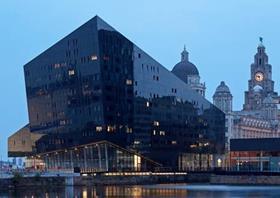Firms in northern England the most optimistic, RIBA’s latest Future Trends survey finds
Architects’ confidence about forthcoming workloads stayed flat in April – but was up on the same month last year.
All nations and regions recorded positive scores with practices in the north of England the most optimistic, returning a mark of +43.
The latest RIBA Future Trends index recorded an overall score of +29 – down slightly from the +31 recorded in March – but this figure was 8% higher than the April 2015 score.
RIBA’s executive director for members, Adrian Dobson, said: “Workload growth has been strong throughout the last year and this is the 12th consecutive quarter in which we have seen rising workloads, as the value of work in progress begins to climb back towards pre-recession levels.”
Private housing and commercial work continue to underpin firms’ workloads with housing posting a score of +33, up from the previous month’s +28. But commercial slumped seven points to end up at +11.
Dobson added: “Buoyant housing activity is no longer confined to London and the south-east but is widespread throughout the country.”
Large practices remain the most positive about upcoming work and the survey said staffing levels were up 6% on 12 months ago.
But Dobson warned: “There is some way to go before employment levels will attain their pre-recession peaks.”
RIBA North opens in Liverpool
The RIBA is opening a new national architecture centre in Liverpool in August.
RIBA North will be in Broadway Malyan’s Mann Island building which wonan RIBA Award and a Carbuncle Cup nomination in 2012.

The gallery will host a programme of exhibitions and the chance to view RIBA’s historic collections. It will also host talks and tours and a new café and shop.
The inaugural exhibition will be on unbuilt schemes for Liverpool, including proposals for the Anglican Cathedral by Charles Nicholson and Philip Webb; Denys Lasdun’s 1959 scheme for the Catholic Cathedral site and a bold vision for a new skyline by Graeme Shankland from the 1960s after two-thirds of the city’s buildings were declared obsolete.



























No comments yet